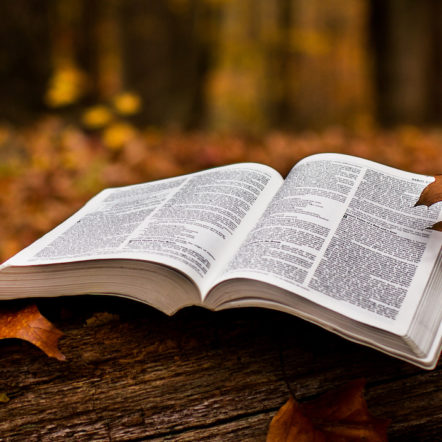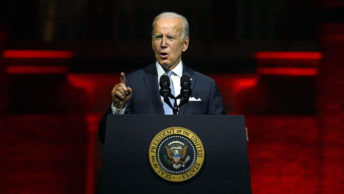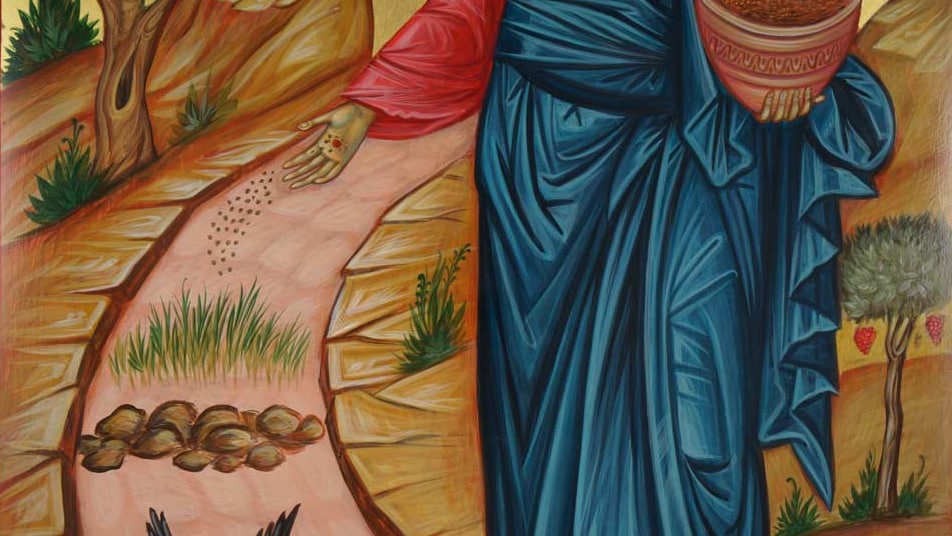When I was in graduate school, one of my history professors told us that the best way to learn history was to read books. I took his advice and read well over a 100 books a year for several years. The one book that I wish I had read more often was the Bible. My knowledge of the Good Book has been barely rudimentary. Until college the Bible was never recommended reading. Oh, we read the Gospels and understood their general meaning but we could never quote the Bible chapter and verse like our Protestant friends. (A few years ago, I did read the Good Book, cover to cover over several months.)
To remedy this deficiency, I attended a men’s Bible study group for over 30 years. Unfortunately, my declining hearing forced me to leave the group, which had grown way too large for my ability to listen and participate. During those years, we studied all of the Gospels, several other books of the New Testament, including Revelations, plus a few from the Old Testament. It was our set policy that everyone has the opportunity to speak their mind as we dissect each line of Scripture.
The discussions were free and open and could be quite heated at times because of all the different perspectives we brought to the table. Even though we had a highly educated group, with two or three PhDs, a medical doctor and a number of lawyers, our backgrounds in Catholic orthodoxy varied widely. Unfortunately, our format led to the erroneous conclusion that all our opinions were theologically equal. Asking a priest to moderate was never a solution because we would sacrifice the spontaneity and openness that sparked some outstanding intellectual exchanges. But the danger is real. I believe that some of the ideas professed over the years have stepped over the boundaries of traditional Church teachings.
There is also a much more subversive issue at work. For years we have debated the point of Gospel origination. I remember when one of our older members left us, precisely for this progressive emphasis. The consensus of most of our commentaries seems to conclude that Mark’s Gospel was first, followed by Matthew and Luke, with John last. This is a departure from what I learned in Theology class 55 years ago years ago when Matthew was first. As part of the proof of this new order, we had been offered the undocumented collection of Jesus sayings that Biblical scholars call Q. The Catholic Encyclopedia remains ambivalent about Q. Fortunately, I have not heard anything about Q in years. Hopefully it died the unmourned death of all fads.
The truth behind this controversy resides in the fact that the scholars who started the movement to re-arrange the order were 19th century German Protestant theologians. My research showed then that there was a very important significance to the Gospel ordonnance. Mark is a barebones Gospel, written for the Romans. It does not include any of the miracles or give much indication of Christ’s Divinity. Mark’s Christ is more the human or historical Jesus that was such the rage years ago. One commentator on Mark even called his Jesus a radical, something Pope Francis has echoed, though in the political sense. So I believe the idea demands caution in its usage. More recently, I have heard Jesus called a revolutionary. The same caveat applies here as well.
More importantly is the fact that the foundation of the Church, that is, Peter being the rock on which our faith was founded 2000 years ago does not appear in Mark. Since Mark wrote after the destruction of the Temple in 70 AD, this invariably pushes Matthew and Luke back, maybe even into the 2nd century. This all lends support to the notion that it was the later Church which added this to the Gospels. In other words, it was the later Christians who conceived the notion of Church, not Jesus. That is a very Protestant bias, since they believe, not in Church per se but in the Word of God…the Bible and its personal interpretations. This might explain why there are, according to Time Magazine, in excess of 47, 000 Protestant denominations.
I have missed a good discussion of the Pope Francis Papacy. Maybe it is a good thing because he has said so many controversial things that I am sure I would have gotten into it with some of the more liberally slanted study members. When I could hear well enough, I seemed to be in the minority when things tended to go with the progressive flow. Our group moderator took me to the woodshed more than once. I think I will take out the Good Book and read a few random passages and see what happens.






